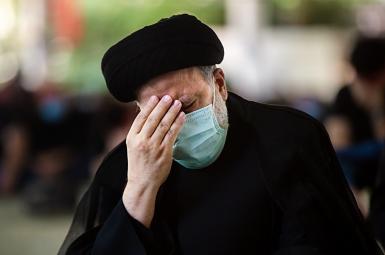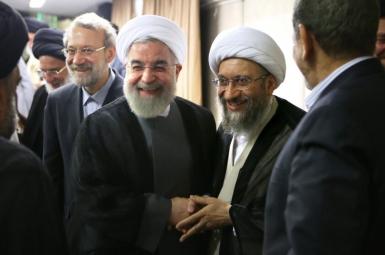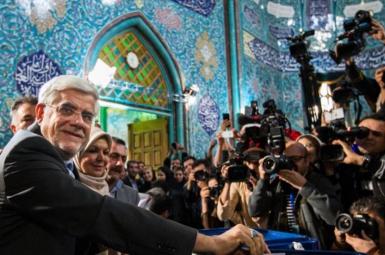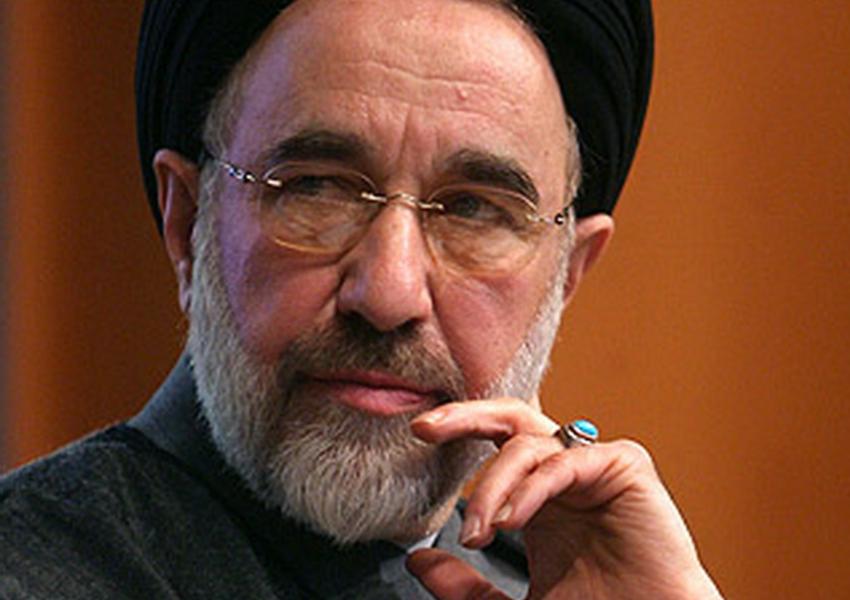
Former President Begs Khamenei To Help Reformists, End Deadlock With US
Iran's former reformist President Mohammad Khatami wrote a 37-page letter to the Islamic Republic's Supreme Leader Ali Khatami two months ago and called on him to "take the lead in solving the country's problems," Rouydad-24 news website reported on Saturday February 27.
Khamenei has ignored or ridiculed previous Khatami letters and has refused to meet with him after his second presidential term ended in 2005. Even when all current and former officials went to see the Leader after a surgery in 2014, Khamenei refused to receive Khatami. Later, Khatami sent a well-wishing letter that received no acknowledgment by Khamenei. In addition, Khamenei has been banned from appearing in Iran's media and it is forbidden to publish his photos in newspapers.
Based on information given to the press by Khatami's office, in the long letter he extensively talked about his own background to refresh Khamenei's memory before offering policy options for the country's domestic political impasse. Among other things, Khatami stated in the letter that he has never done anything against the Islamic revolution and its supreme leader.
Implicitly asking Khamenei to use his influence to give a political opening to reformists he assured him that he and the reformists are loyal to him and his regime.
Iranian reformists were side-lined by the regime in the latest Parliamentary elections in February 2020, where no well-known reformist figure was allowed to run. Many political observers and activists have expressed concern since then that the hard core of the regime is planning to do the same this year to ensure that no reformist wins the presidency.
Meanwhile, Khatami suggested that Khamenei should pave the way for negotiations with the United States and end Iran’s foreign policy deadlock now, meaning while he is still alive. The same suggestion was made to the Islamic Republic's first leader Ruhollah Khomeini, but he did not take the advice although he at least agreed to make peace with Iraq.
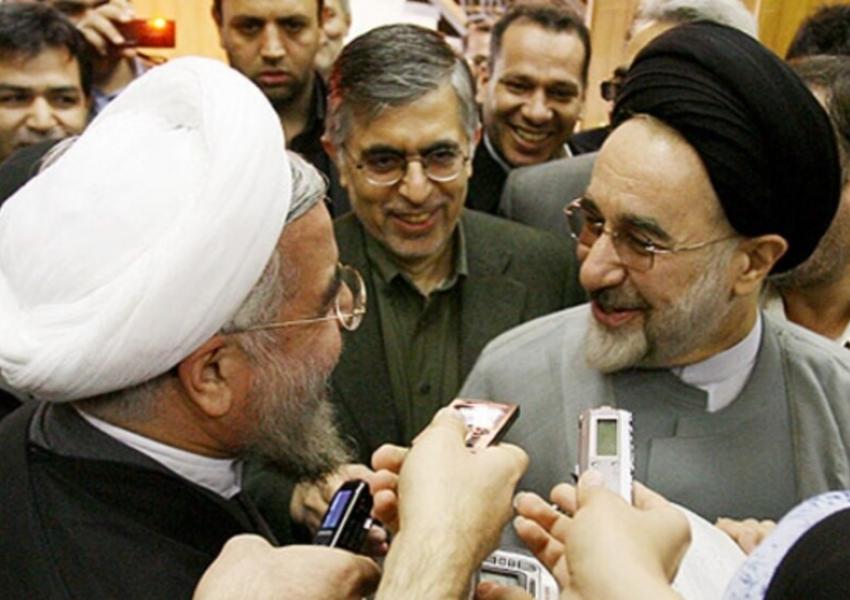
Khatami’s two-term presidency (1997-2005) was an era of more political diversity and a relatively less restricted press. Talk of reforms dominated social discourse amid blossoming student movements. But conservative forces and the Revolutionary Guards reacted to this mood of change and shut down dozens of newspapers. Meanwhile, Khatami who dared to demand more powers from Khamenei, was outmanoeuvred into inaction until his term ran out and he was replaced by the ultraconservative Mahmoud Ahmadinejad.
According to Khatami's brother the letter was handwritten and handed over to a Khamenei confidant and no one else is aware of its exact content.
Khatami and his reformist allies have lost a lot of credibility as they have swallowed one political slight after another from Khamenei and his hardliner supporters. As they appeared to control the presidential administration and the parliament from 2017 to May 2020, Iran’s political and economic situation further deteriorated, demonstrating their inability to show a strong hand in governance.
Some have criticized Khatami for not expressing concern "even in 37 words" over the killing of hundreds of protesters by Iran's security forces during the November 2019 protests and now writing a 37-page letter to promote pro-regime "reformists."
Iranian women's rights activist Asieh Amini said in a tweet that Khatami's letter was some sort of haggling to give a place to Iran's reformists, nit to defend people's rights. She added: "If people do not want the government, how can they change their political fate? This 37 pages contain nothing about the people's right to determine their political fate."
Meanwhile, Iranian journalist Reza Haqiqatnejad wrote in another tweet: "Khatami has not been allowed to meet with Khamenei for 10 years, and Ahmadinejad for 4 years now. Every once in while they write a letter to him that is likely to receive no reply. As far as Khamenei is concerned, they are instruments whose expiration date has passed long ago."
Previously, Khamenei ignored a letter by Khamenei who suggested national reconciliation to cope with US President Donald Trump's pressures. Khamenei responded obliquely in a gathering that Iranians are not sulking with each other, so they do not need a reconciliation plan.
In another development that showed Khamenei's reluctance to talk with the former president, he sent his condolence message on the passing of Khatami’s mother to his sister and not to him.
Conservative figures such as Hamid Reza Taraqqi of the Islamic Coalition Party have said that Khatami writes these letters to save the reformists from the oblivion in which they have been drowned.

